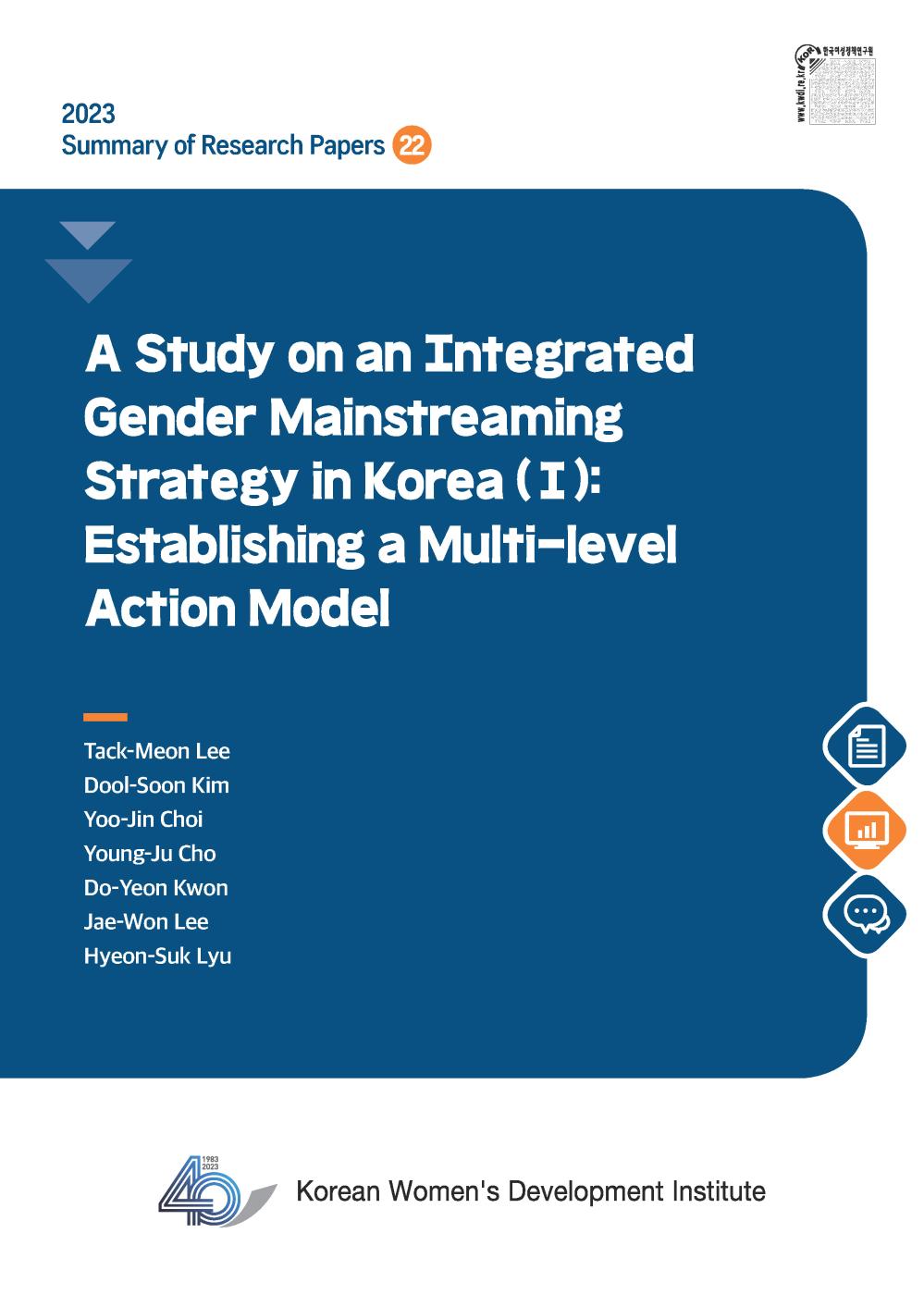Report
| A study on Gender-mainstreaming Strategy in Korea: Towards an Integrated Apporach | |||
|---|---|---|---|
| Type | Basic | Period | 2023 |
| Manager | Taek-Meon Lee | Date | 2023-12-29 |
| Fiie | 22_성주류화 제도의 통합적 운영모형 연구(Ⅰ) 다층적 연계모형의 확립.pdf ( 1.91 MB ) | ||
|
Abstract A study on Gender-mainstreaming Strategy in Korea : Towards an Integrated Apporach Taek-Meon Lee Dool-Soon Kim Yoo-Jin Choi Young-Ju Cho Do-Yeon Kwon Jae-Won Lee Hyeon-Suk Lyu
The study starts from the acknowledgement that gender- mainstreaming in Korea has been pursued in a disconnected way. First, gender budgeting, gender impact assessment, and gender responsive statistics - so called the three pillars of gender-mainstreaming - have been designed and implemented as if they were separate systems having their own legal basis and governance structure respectively, without an adequate effort to integrate them in an wholistic approach. Second, gender-mainstreaming initiatives have failed to exert some influence on the processes of whole-of- government performance management spearheaded by the ministry of economy and finance and the prime minister’s office, even though evaluating government activities from gender perspective is among the most important components of what gender-mainstreaming is all about. Third, inter-governmental linkages have not been paid due attention in pursuing gender-mainstreaming strategies across the levels of government(central, regional, and local levels). While considering these three kinds of problems in Korean gender-mainstreaming initiatives, the study aims to suggest how to overcome these problems and achieve a three-folded integration when it comes to gender-mainstreaming strategy in Korea. The first suggestion is about “within integration” : an integration within the three pillars of gender-mainstreaming strategy. The second is about “between integration” : an integration between the three pillars and the performance management systems of the MoEF and PMO. The third is concerning “inter-governmental integration”, which refers to the integration between levels of government with regard to their respective gender-mainstreaming initiatives.
On the basis of these integration strategies, the study proceeds to propose four best-case scenarios where Korean government will be able to conduct a successful, fully integrated and substantially impactful gender-mainstreaming by redesigning relevant rules and legal provisions for gender budgeting, gender impact assessment and gender-responsive statistics.
Research areas: Gender Impact Assessment, Gender Budgeting, Gender Statistics Keywords: the system of gender mainstreaming, Gender Impact Assessment, Gender Budgeting, linkage between systems |
|||
